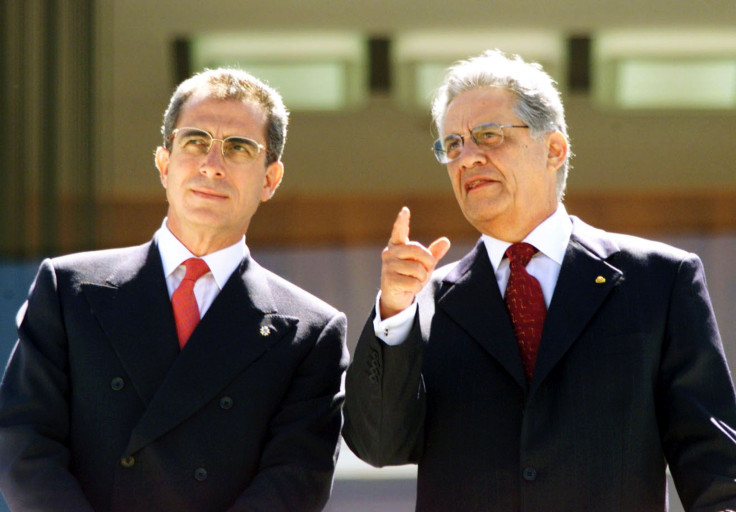
Three former Latin American heads of state are urging drug decriminalization ahead of a U.N. panel that could set the tone for the future of the global “war on drugs.” Between the three of them, they have represented a third of the Western Hemisphere’s population and more than half the population and GDP of Latin America. Now they are stumping for drug reform. In an op-ed published in the L.A. Times, presidents Fernando Henrique Cardoso (Brazil), Cesar Gaviria (Colombia) and Ernesto Zedillo (Mexico) argue that the U.N. Commission on Narcotic Drugs in Vienna needs to include more input from drug decriminalization groups and member states with a stake in global narcotics policy.
None of these leaders were lightweights in the areas of crime and punishment while they were president. But after their own experiences trying to fight a drug war in their own countries -- often in concert with American authorities and aid packages -- they say that it hasn’t worked. Instead, they point to examples of drug decriminalization across the globe. A legal marijuana market in Colorado, U.S. Heroin clinics in Switzerland where addicts inject without spreading HIV or stealing to get drug money.
The former presidents are asking the U.N. panel to consider three recommendations to send to the General Assembly, where a non-binding resolution won’t force countries to change policies but could add to their campaign to make drug war alternatives mainstream. First, decriminalize drug consumption and the jailing of drug users. Second, abolish capital punishment, even for drug-smugglers. Third, let the WHO reclassify drugs (currently, intoxicants like marijuana are often held up as being equally dangerous a narcotics like heroin.)
The Latin American presidents have received the support of Kofi Annan, the former U.N. secretary-general, who is a member of their Global Commission on Drug Policy.
“Drugs are dangerous, but current narcotics policies are an even bigger threat," Annan told the AP. "This is because punishment is given a greater priority than health and human rights.”
The arguments made by world leaders are echoing in U.S. states and in the 2016 U.S. presidential election, at least on the Democratic side of the debate. Vermont Senator Bernie Sanders has openly supported marijuana decriminalization. Hillary Clinton has endorsed a rethink of drug reclassification of the country’s own narcotics code, which has the potential to lower punishments for drug offenses. Current democratic president Barack Obama has grabbed headlines by pardoning non-violent drug dealers, cutting down their sentences.
Will these proposals lead to cocaine on tap and impunity for narcotraffickers? Our should governments adopt them as a more realistic approach to tackling the drug problem? Let us know what you think, in the comments below.
© 2025 Latin Times. All rights reserved. Do not reproduce without permission.



